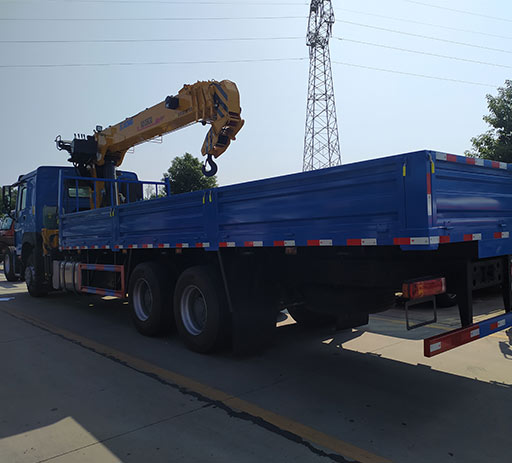Revolutionizing Agriculture: The Rise of EV Tractors

Introduction
The farming industry is undergoing a significant transformation, driven by a combination of technological advancements and the urgent need for sustainable practices. Among these advancements, electric vehicles (EVs) have made a remarkable entry, paving the way for the emergence of **EV tractors**. These innovative machines promise to reduce emissions, lower operational costs, and improve efficiency on the farm. This article delves into what EV tractors are, their benefits, the technology behind them, practical applications, and what the future holds for this groundbreaking addition to agriculture.
What is an EV Tractor?
An EV tractor is an agricultural tractor powered entirely or primarily by electric energy. Unlike traditional diesel or gasoline tractors, which rely on internal combustion engines, EV tractors utilize electric motors that draw power from batteries. This shift not only reduces greenhouse gas emissions but also minimizes noise pollution and offers operational efficiency.
The Components of an EV Tractor
Understanding the components of an EV tractor can help illustrate how these machines operate:
- Electric Motor: Central to the EV tractor’s operation, the electric motor converts electrical energy into mechanical energy.
- Batteries: High-capacity batteries store electrical energy and are typically lithium-ion as they offer a good balance of weight, capacity, and efficiency.
- Power Electronics: This component controls the flow of electricity to the motor and manages battery charging.
- Chassis and Structure: Similar to conventional tractors but often designed to accommodate heavier batteries.
The Benefits of EV Tractors
EV tractors offer numerous advantages over their diesel counterparts:
1. Environmental Impact
EV tractors produce zero tailpipe emissions, which significantly reduces the carbon footprint of agricultural operations. They also contribute to improved air quality, particularly in rural areas.
2. Cost Efficiency
While the initial investment in EV tractors may be higher, the operational costs are significantly lower. Electrifying farm equipment can result in savings on fuel, reduced maintenance expenses, and government incentives related to sustainable farming practices.
3. Reduced Noise Pollution

Electric motors are considerably quieter than traditional engines. This not only benefits farmers by creating a more pleasant working environment but also protects local wildlife.
4. Enhanced Efficiency
EV tractors can offer torque and power at low speeds, facilitating tasks that require precision and control. They also provide immediate power without the lag often associated with conventional gasoline or diesel engines.
Practical Applications of EV Tractors
EV tractors are versatile and can be used across various agricultural activities:
Crop Farming
For crop farming, EV tractors can easily perform tasks such as plowing, planting, and harvesting. They can be used with various attachments like sowers or combines.
Livestock Management
In livestock management, these tractors can help in feeding, cleaning, and transporting goods. The quiet operation can help minimize stress among the animals.
Orchard and Vineyard Maintenance
In orchards and vineyards, EV tractors allow for delicate care without damaging plants. Their reduced noise levels make them ideal for residential and tourist areas nearby as well.
Soil Regeneration Practices
As regenerative agriculture rises in popularity, EV tractors lend themselves well to practices that aim to restore soil health by minimizing soil compaction and enhancing biodiversity.
Challenges Facing EV Tractors
Despite the numerous benefits, there are challenges in the widespread adoption of EV tractors:
1. Initial Cost
The upfront cost of EV tractors can deter some farmers. However, long-term savings on fuel and maintenance may offset this investment over time.

2. Battery Life and Charging Infrastructure
Battery capacity and the availability of charging stations can limit the effectiveness of EV tractors, especially on large farms with extended operating hours.
3. Limited Power for Heavy-Duty Tasks
While many EV tractors are efficient for light and medium-duty tasks, some heavy-duty operations may still require traditional tractors until battery technology advances further.
The Technology Behind EV Tractors
The advancement of technology in the agricultural sector is crucial for the development and efficiency of EV tractors:
Battery Technology
Current EV tractors primarily rely on lithium-ion batteries. Research into solid-state batteries promises to increase energy density and reduce charging times, making them even more appealing.
Integration with Precision Agriculture
Integrating EV tractors with GPS and IoT technologies enables precision farming practices. Farmers can use data analytics for better decision-making, improving overall efficiency.
Telematics and Remote Monitoring
Telematics systems allow farmers to monitor the performance and health of their EV tractors in real-time, optimizing their usage patterns and scheduling maintenance effectively.

Comparing EV Tractors with Traditional Tractors
An overview of the differences can provide clearer insight into the benefits EV tractors present:
| Feature | EV Tractor | Traditional Tractor |
|---|---|---|
| Fuel Type | Electric | Diesel/Petrol |
| Emissions | Zero | High |
| Maintenance Costs | Low | High |
| Noise Level | Very Low | High |
| Power Delivery | Instant Torque | Progressive Torque |
Future Trends in EV Tractors
As the agricultural landscape evolves, these trends are expected to shape the future of EV tractors:
Enhanced Battery Technology
Continual advancements in battery technology will lead to lighter and more energy-efficient models, expanding the use of EV tractors in heavier applications.
Greater Automation
Integration with robotics and automated systems is anticipated to grow, streamlining processes and reducing labor costs.
Government Policies Supporting Sustainability
Many governments are introducing incentives for green practices in agriculture, encouraging more farmers to adopt EV technologies.
Increased Industry Collaboration
Partnerships between agricultural manufacturers and tech companies will likely accelerate the innovation of EV tractors and their supporting systems.
Tips for Transitioning to EV Tractors
Farmers considering the switch to EV tractors can benefit from the following tips:
1. Assess Your Farm Needs
Evaluate the size of your farm, the types of crops or livestock you manage, and the existing infrastructure. This will help you determine which size and model of EV tractor will be the most beneficial.
2. Investigate Local Charges
Before investing, research the availability of charging stations in your area and plan how the charging needs will fit into your operational schedule.
3. Take Advantage of Government Programs
Look into grants, subsidies, and tax incentives offered by government bodies for transitioning to sustainable agricultural practices.
4. Engage with Others in the Industry
Join local farming associations or online communities to share experiences and seek advice from those who have already made the transition.
Frequently Asked Questions (FAQ)
1. How does an EV tractor compare in terms of power to a traditional tractor?
EV tractors deliver instant torque, which allows them to perform certain tasks efficiently. While they match the power for most applications, heavy-duty tasks may still require traditional tractors until battery technology advances further.
2. What is the lifespan of an EV tractor battery?
The lifespan of EV tractor batteries can vary, generally ranging from 5 to 15 years, depending on usage, maintenance, and the type of battery used.
3. Are there any subsidies available for purchasing EV tractors?
Yes, many governments offer grants or subsidies for farmers who choose to invest in equipment that reduces emissions and promotes sustainability.
4. Can EV tractors be used in all weather conditions?
Yes, EV tractors are designed for robustness and can operate in various weather conditions, although careful monitoring is always advisable.
5. What maintenance is required for EV tractors?
EV tractors typically require less maintenance than traditional tractors. Key maintenance includes checking battery health, replacing filters, and inspecting electrical systems.
6. Are there specific brands leading in the EV tractor market?
Yes, several brands are pioneering the EV tractor market, including John Deere, New Holland, and Fendt, each offering its unique models and features.
